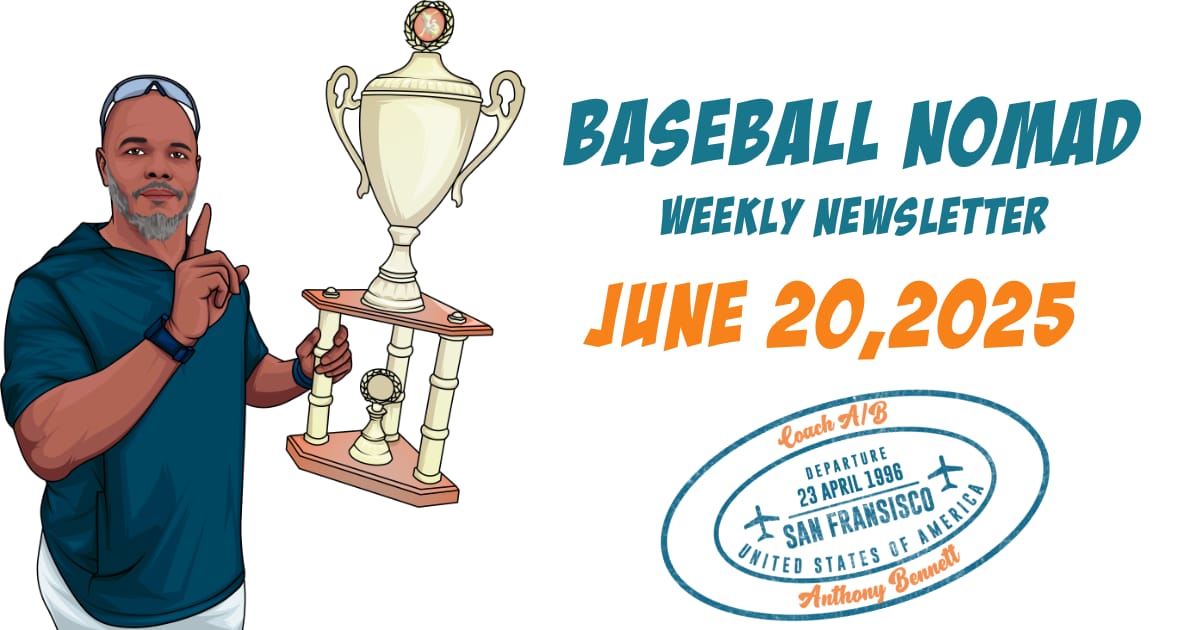📖 What I’m Reading: 🧠 Chapter 7 - “Naive Intervention” – Nassim Nicholas Taleb
This chapter hit home hard. As coaches, we want to help. We hate watching players struggle—especially when we see potential.
But here’s the uncomfortable truth:
Jumping in too fast—too often—can rob them of the struggle that builds their game.
Taleb warns:
“In complex systems, interventions often cause more harm than good.”
Baseball isn’t a math problem. It’s rhythm, timing, confidence, pattern recognition—and chaos.
🧠 Coaching isn’t about fixing everything with the next flashy drill or pretending you’re some swing guru.
It's about creating environments where players can learn. Not just succeed—but learn.
💬 Coach’s Cue:
“Be the gardener, not the surgeon. Let the roots struggle a little.”
It’s hard to watch a kid fail. But if we allow them space to fail with purpose—we give them something we can never teach: resilience.

Me: Doing My Ice Bath, Reading.
🎥 What I’m Watching: “J.R. Richard: The Tragic Rise and Fall of a Baseball Ace”
from Press Box Chronicles with Jeff Pearlman
Man… I grew up watching J.R. Richard. It was insane.
He was 6’8”, 100+ mph gas—no changeup, no tricks—just pure hellfire coming at you.
🧱 My dad loved the Astros. Between J.R. and Nolan Ryan, it felt like every pitch was a dare. You knew the fastball was coming—and he still blew it by you. No finesse. No apology. Just “good luck.”
But that’s what makes what happened to him even harder to stomach.

🧠 Dominant one week. Disregarded the next.
He kept telling the team something wasn’t right. He had symptoms—numbness, blurred vision, grip issues. They ignored him.
I’m not trying to offend anyone here—but let’s call it like it is:
Race had a lot to do with J.R.’s tragic fall.
His own organization didn’t trust he was telling the truth.
And it was far too common in that era to label Black players as malcontents or malingerers when they spoke up.
⚠️ J.R. wasn’t fragile. But the system around him was.
And when it cracked—no one was there to catch him.
🧘♂️ What I’m Learning:
TWe don’t lose because of failure.
We lose because we never reset after failure.
That voice in your head that says “I’m off,” “I’m done,” “It’s slipping”—
—that’s not your downfall.
Your downfall is not taking a breath and switching it off.
This is true between pitches, between innings, between games, between bad weeks.
🎯 I’m building out a 3-Day Mental Skills Challenge that trains this reset muscle. Because we can’t control everything—but we can learn how to come back to center.
Coach’s Cue:
“Resetting isn’t soft. It’s savage. It’s how you stay in the fight.”
✍️ What I’m Writing:Austria’s Offense: Roles, Clarity & Identity
We’re not going to out-talent everyone. And we don’t need to.
But we do need to own who we are—with what we’ve got.
I’m laying out 4 offensive role types. Each guy gets a lane.
With full buy-in, we create chaos that elite teams can’t plan for.
Coach’s Cue:
“We don’t fake it. We own it. And we play like hell with what’s in our hands.”
❓Let’s Talk:
What’s been the hardest part of stepping back for you as a coach or parent?
Have you ever learned more by not acting? Or seen a player figure it out because you didn’t jump in?
💬 Reply to this email or DM me—I'd love to feature some of your stories in a future BoostMode episode.
Until next time—
🧠 Stay wise.
🪨 Stay antifragile.
🔥 Don’t flinch.
💪 And, Get Shit Done.
Coach A/B
The Baseball Nomad | 🇺🇸 🇦🇹 🇯🇵 🇦🇺 🇿🇦


